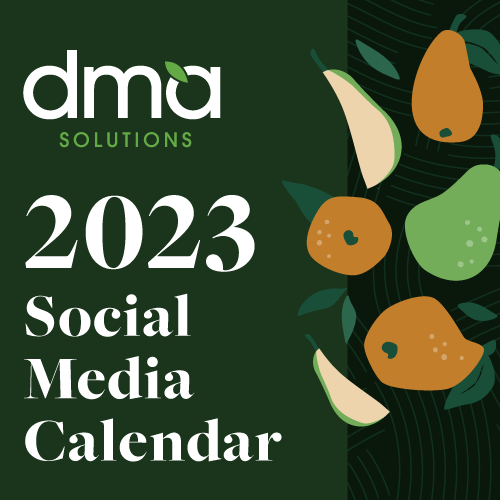When “private label” is brought up in a conversation within our industry, you can cut the tension with a knife. Why is that? I believe it’s because we all have different opinions and ideas on who private label benefits. Does it benefit the grower? The retailer? Or even the consumer? Here’s a spoiler alert on my thoughts…
When private label is used solely as a way for retailers to ensure volume and control costs that ultimately impact the grower, I don’t believe it benefits anyone.
As the president and CEO of a fresh produce marketing agency, I know it probably doesn’t come as a surprise that I’m “pro” brands in the fresh produce industry. Marketed brands are essentially advocacy for shoppers. Private label removes marketing from the equation and ultimately prevents brands from engaging with consumers, which in turn, can reduce trust and reliance upon a business and eventually negatively impact sales.
Before I outline the specifics about the impact I believe private label is making on our industry, know that I do believe there are several great examples of private retail brands that truly deliver on their promise – brands like Trader Joe’s, 365 from Whole Foods, etc. Brands like these are important and moving the needle in terms of selling produce. There are also plenty of other examples of categories in our industry that worked to build trust and establish brands only to be commoditized by generic private labeling. Solely relying on private label will only result in a race to the bottom for fresh produce and that isn’t the direction we should be heading.
So let’s talk about who private label impacts:
The Grower/Producer
- At DMA, we’re constantly studying generational marketing and realize shoppers are caring more and more about where the products they’re purchasing come from and the story of the company behind them. Brands, with the help of strategic marketing efforts, are empowered to tell these stories. This is why generic private labels are counterproductive to the investment and hard work that growers are putting into marketing and building their communities. In the absence of a brand, there is no brand loyalty. Without brand loyalty, there’s not much of an incentive to make an intentional purchase.
The Retailer
- Historically, private label is a way for retailers to ensure volume and control costs that often negatively impact growers. Though there are still some price advantages at the retail level, the effort a retailer is required to take on can outweigh the lowered cost. When retailers work to commoditize or make products more generic, it can confuse the shopper and make them question a product’s origin or quality. Also, retailers are putting themselves in a position to take on additional customer-service issues that shoppers would typically seek out from the brands they know and trust. To reiterate, I am pro retail brands when there is an obvious investment and it is serving the consumer. But simply slapping a generic label on fresh food is benefiting no one.
The Consumer
- If 2020 taught us anything, it’s that consumers look to brands for answers during difficult times. Whether it’s a pandemic, product recall or assistance with their weeknight dinner, people seek out brands for instruction and inspiration. The problem is that during the height of the pandemic last year, there wasn’t a voice from private label sharing necessary information. For example, when consumers were looking for basic information like how to best wash their produce, they couldn’t reach out to the private label brands. So who did they reach out to? The brands that have spent years investing in marketing and building trust with shoppers. While store brands can be cost-effective for certain items like paper products, when it comes to food (especially fresh food), a brand must be present to give the shopper a reason to purchase.
As a fresh produce marketer, I believe in the power of brand awareness for our products. Brands must continue to be able to tell their story, showcase their quality, connect with and inspire shoppers.
While I aimed to simplify the realities of private label above, I’m hopeful this topic is a discussion we continue to have as it has many complexities to it that can’t fully be summed up in a short blog post. But if we want to continue building trust with shoppers and increasing the demand for fresh food, it’s a conversation worth having. Want to talk more? Schedule a call and let’s chat!
{{cta(’78d3fee5-7e8f-4f2a-b7d6-64eb5db8389f’,’justifycenter’)}}












